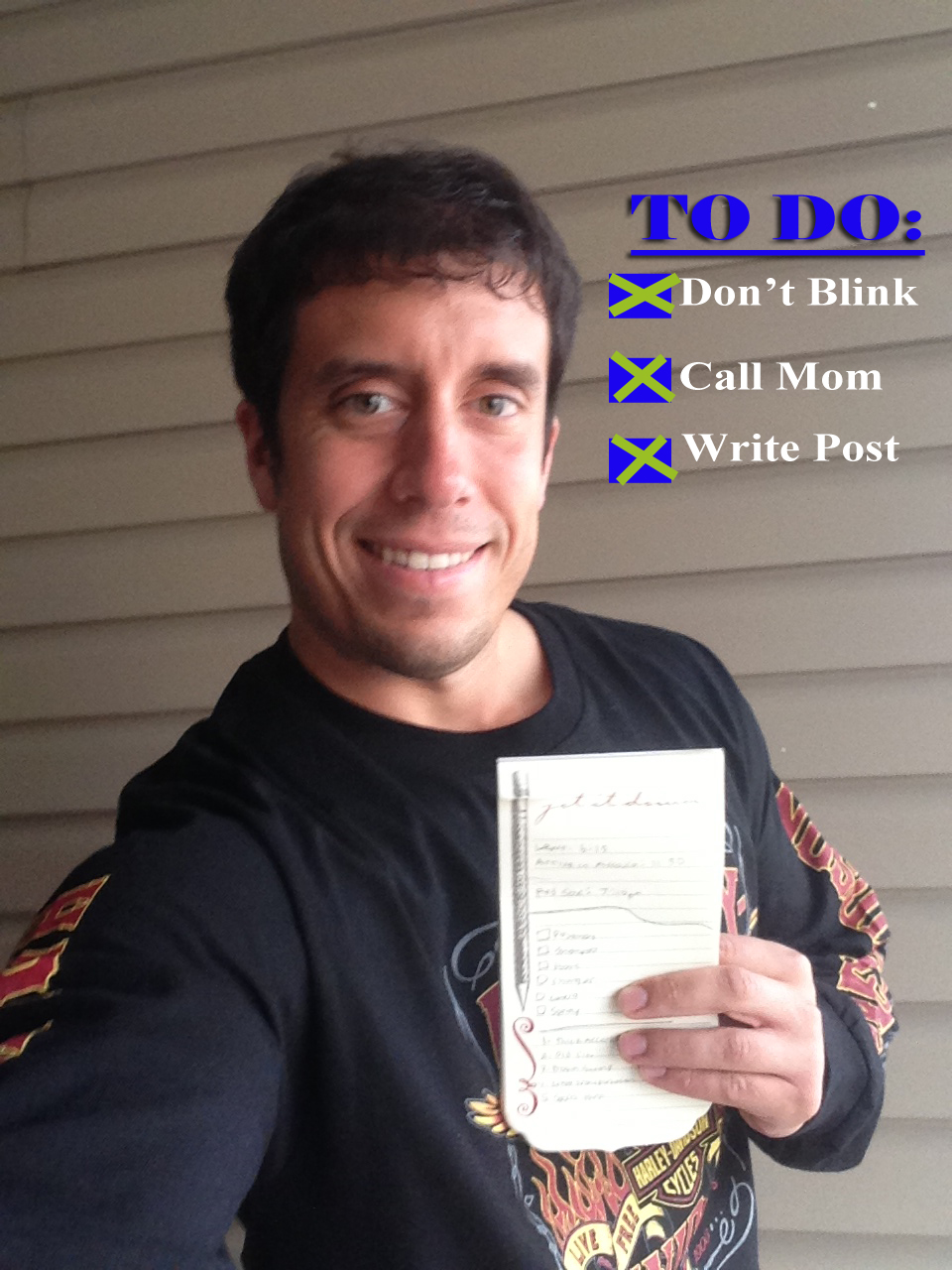One of the few good habits that I have developed is constructing checklists. Growing up I always remember my dad writing out a checklist of tasks to do the next morning before work. Before going to sleep that night he would put the list at his head spot at the kitchen table. When he would get up for the day the list would be waiting for him and he would get to work doing what he needed to do before he set out to the office.
I emulated my dad in a lot of ways and this was one of those rituals that I adopted from him. In fact, when it comes to this particular task I latched onto it from a young age. In my late elementary school years I too was scribbling out checklists and placing them at my spot at the dinner table to await me the next morning. Most of them just reminded me to bring simple items to school but a lifelong habit was formed.
Throughout my high school and college years I used checklists to remind me of components to include in presentations/papers, questions to ask when I visited with teachers, different study items to go over, and daily tasks to complete throughout the school day. However, utilizing checklists during my academic years definitely did not constitute a unique idea on my part. Creating and working off checklists might possibly be the most popular study skill that any teacher, counselor, or planner might give you. Take heed all of my school aged readers, always make lists to help keep you on track.
But I think outside of the classroom and outside of the studying atmosphere, checklists lose importance to a lot of people. I want to get across that I don’t think checklists should vanish when we age but rather they should stay as prevalent as they were during our school years. Right as this moment I have three active checklists. I have one lying on my desk at work right now with a big heading that says “Friday” on it. It will be waiting for me when I get in tomorrow morning. I have a second checklist to the left of me as I type this that has all the tasks lined out that I want to accomplish tonight. Finally, I have a third checklist on the top of my refrigerator that has items I need to buy and items that I need to pack for my trip to Vegas this Sunday.
Besides my active checklists, I have way too many inactive checklists from days, weeks, and sadly, even years ago lying around in my junk drawers, storage unit, and my work files. Although I do like to pick up some of these old crumpled lists every now and then and glance at what I had on my plate 16 months ago, I do want to do a better job of disposing of them. After all, I already have my journals to fill me in on my past.
Apologies for the irrelevant last paragraph.
Checklists are important for all of us to use. In the same ways that they helped us when we were younger (sorry if I keep assuming that everyone used them in school), they help us in the same way today. They keep us on task, they help us feel accomplishment when we mark items off, and they save us from forgetting important details that could negatively impact us. If you use checklists you will never: not call someone back, miss a meeting, not pack your cell phone charger, wonder what you have to do next, forget to pay rent, not pick up milk at the store, lose track of an important date, neglect to update something, etc. etc.
While it is definitely effective to pull up a chair and create a checklist in one sitting there is always the fear that you might miss something. That is why the key is to have running checklists so that whenever something comes to your mind you can jot it down. The notepad option on my iPhone works wonders for this. I type notes into my iPhone non-stop throughout the day. Then, when I do have time I sit down and transfer those notes to an actual hand written to-do list. Because I am constantly typing notes into my phone about everything that comes to my mind (even the very trivial) I tend to have quite long checklists. But for the security and peace of mind that comes from knowing you are covered it is well worth it.
Always keep checklists. Taking the small amount of time to make them will always pay off in the long run. If you know someone who might not utilize checklists but could definitely benefit from using them, purchase him/her stationary that is printed for such purposes. Well, time to mark off the third item on tonight’s checklist that says Write Blog Post because this baby is done. Don’t Blink.


Pingback: How I Prepare For Vacation | Don't Blink